Can Certain Ad Networks Hurt Your Rankings and SEO?
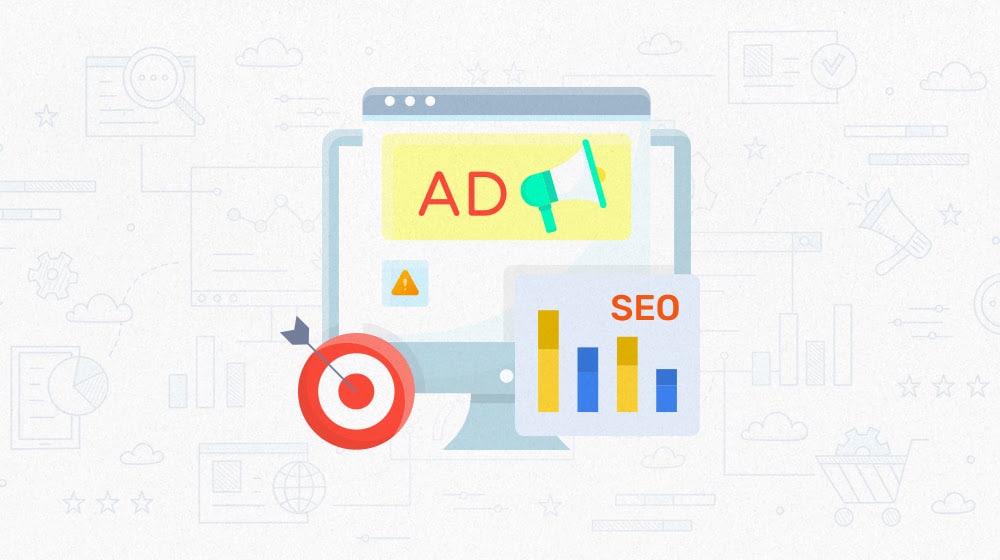
When you're running a website, and you want to monetize it, chances are one of the first places you're going to look is display ads. It's a lot easier to throw a few ad units on your site and make money passively than it is to develop a whole sales funnel for products, whether you're running affiliate links or dropshipping, and that says nothing about the challenge of developing your own product.
After all, making a few bucks isn't really worthwhile if it tanks your overall site ranking and hurts your future monetization options.
 30 Second Summary
30 Second Summary
You need to know that display ads can hurt your SEO in several important ways. Your site will suffer if you let ads take up more than 30% of your page space. You'll also have problems if your ads slow down your page load time or cause content to jump around as they load. To stay safe, you should focus on quality over quantity with your ads. Pick good ad networks, avoid malicious content and make sure your ads don't create a poor user experience. You might want to look at other ways to make money from your site.
A Simple Answer
If you know me, you know I like to start off posts like this with a simple answer and then dig deeper into the details. You also might know that most of the time, the simple answer isn't really an answer at all. That's the case here, as well.
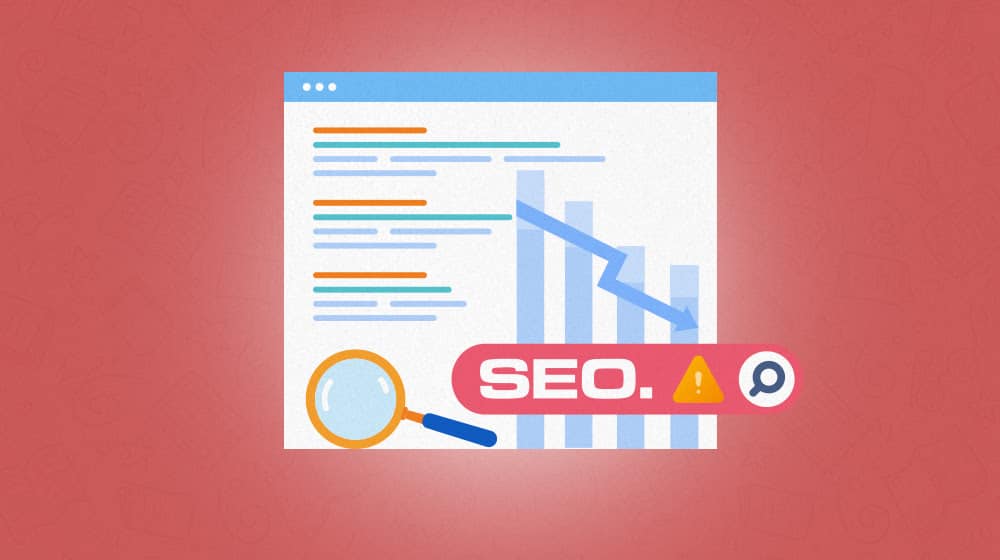
However, it's not an easy "avoid these ad networks and you're fine" correlation. There are several different factors at play. Not all ad networks will hurt your SEO, and when your SEO is damaged by ads, there are reasons for it.
So, let's dig into the causes and solutions you can encounter.
Cause #1: Ad Density
The first and, generally, the most common reason why ads hurt the SEO of a website is not the ads themselves or their presence but their density. Unfortunately, it's very easy to fall into a negative feedback loop.
It happens like this. You put a couple of ads on your site, maybe a sidebar and a top-bar banner. These ads get impressions and earn you some money, but it's not very much. Worse, over time, you notice drops. The value you get from the ads, the click-through rates, and the pricing all drop over time. All of this means you aren't earning as much from those ads anymore.
To maintain your income, you need more ads, so you add more ads. Maybe a footer ad, maybe a box in the middle of your content, maybe a second sidebar. This works for a time, but the same pressures keep driving down the value of the ad units.
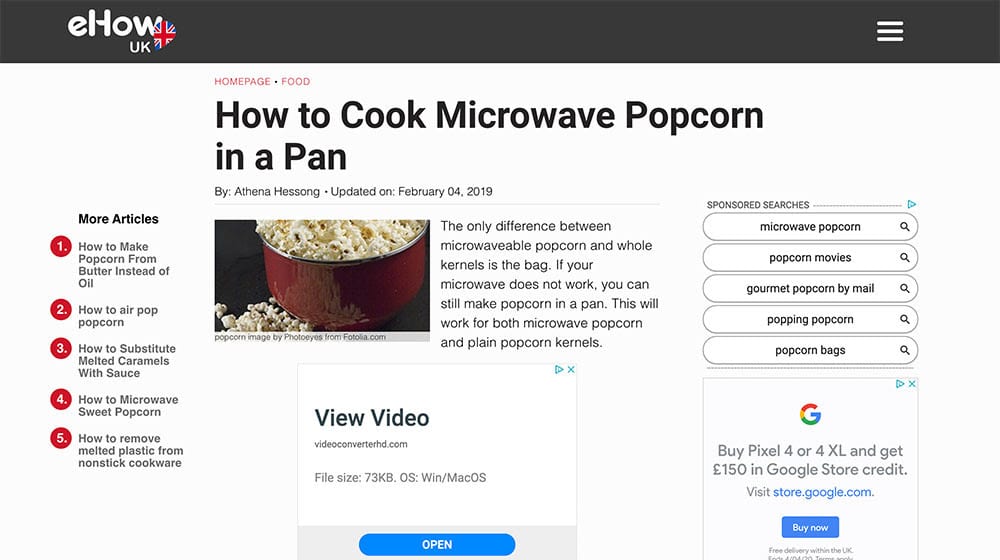
Maybe you start to come up with other ways to use ads. You have a little slide-in window with a video ad. You have a floating footer ad on your mobile site. You paginate your content (properly canonized!) and have more ad units per piece of content.
Over time, this process feeds back on itself until you end up with a site that has more ads on it than content. That is where things really start to hurt.
That's when you end up with something like the Fandom Wiki experience on mobile, which often looks like this (or worse, with layered ads.) Can you spot what portion of that screenshot is page content? It's the "Marvel Database" line at the top and half of the letter H in the bottom-left corner. Everything else is an ad.
Obviously, this is a terrible user experience, and Google acknowledges that. They even have a specific rule about it, called the 30% rule. The idea is that ads should never take up more than 30% of the vertical space on a screen, desktop or mobile.
The more ads you put on the page, the more likely you are to end up over this 30% density marker, and the more likely you are to be penalized for it.
Cause #2: Ads Slowing the Site
The second reason why you might end up with ads hurting your SEO is because they can negatively impact many of the metrics Google uses to evaluate a site on a technical level today. The two largest metrics that ads impact are site speed and CLS.
Page speed is obvious. How quickly, from the moment someone clicks on your link, does your page load the content they want to see? All too often, sites are designed to load from the top down, so they can be delayed by things like navigation bars, dynamic and image-heavy headers or lightboxes, and the media scattered throughout the page. A good page loading speed is a lot faster than you might think and can be surprisingly tricky to achieve. Trust me on this one; I've spent a lot of time optimizing my site (and coming up with tips to help you follow suit.)
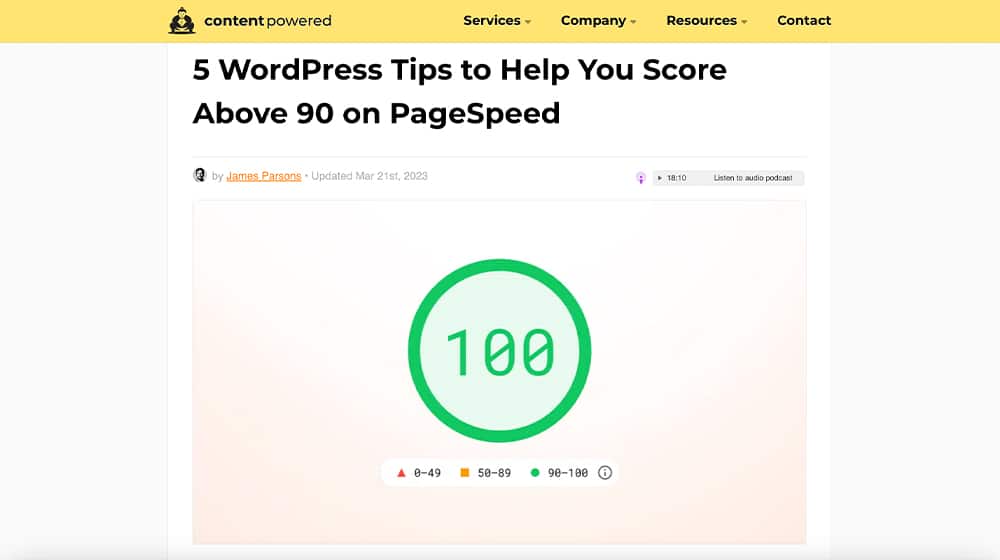
Ads slow down your site because they're pulling media, often dynamic media, from another domain. You're reliant on that other domain to process your request and serve appropriate content very quickly, and not all ad domains are good at that. Considering that ads are usually targeted and personalized, you can't even pre-cache the ad content; it needs to be generated on the fly. It's a nightmare.
The general solution is to lazy load the ads so they pop in after the content loads. That's great, but then you risk running into CLS issues.
What is CLS? CLS is one of Google's Core Web Vitals, and it stands for Cumulative Layout Shift.
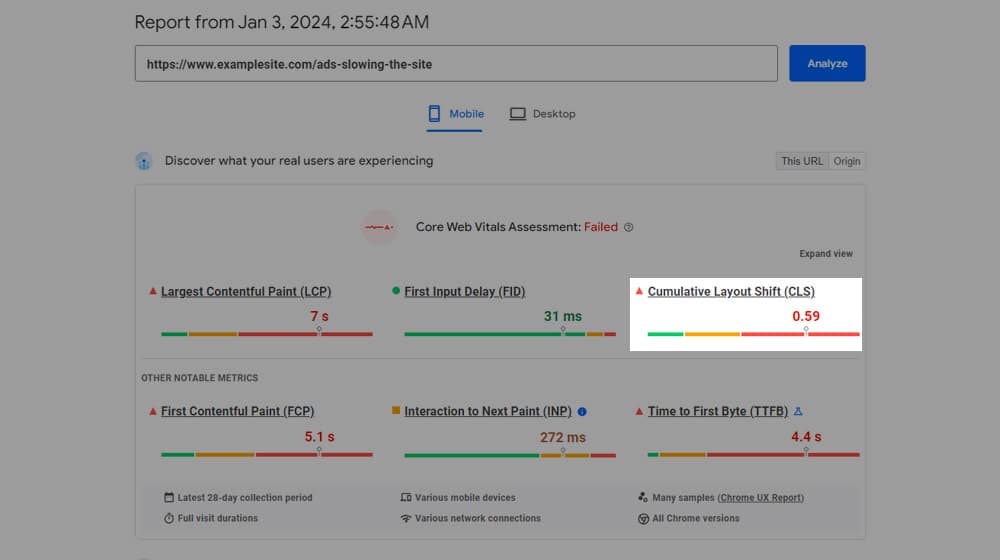
Have you ever loaded up a page, seen the content pop in, and started reading, only for some element above it to suddenly load and push what you were reading down or even off the page entirely? It's frustrating, mildly confusing, and leaves you wondering whether it's a pop-up you need to close or you need to scroll one direction or another to find what you were doing.
Worse, if you were about to click on a link or button when the content shifts, you risk accidentally clicking on an ad, and that's explicitly something Google wants site owners to avoid.
We create blog content that converts - not just for ourselves, but for our clients, too.
We pick blog topics like hedge funds pick stocks. Then, we create articles that are 10x better to earn the top spot.
Content marketing has two ingredients - content and marketing. We've earned our black belts in both.
Delayed loading ads often means the space taken up by those ads needs to be accounted for, which means knowing how big the ads are and putting buffer space there so the space, if not the content, is there when the page content loads. That way, even if the ads take a moment to load in, it doesn't disrupt the user experience.
Cause #3: Other Negative User Experiences
There are other ways that ads can create a poor user experience. Ads that flash and blink obnoxiously, ads that play sounds or autoplay video, ads that slide in over content, ads that layer on top of each other, ads with X buttons to close them that are tiny and hard to click or tap; all of these are ways that ads can hurt the experience of using a site. And, the worse the user experience, the worse you're likely to have it with SEO.
There's another way ads can hurt, which is inappropriate ads. There's a lot of unsavory content online and a lot of content that is fine but should be age-restricted. Pornography is a big one, though most ad networks are good at keeping overt pornography off of their systems. There are dedicated ad networks for adult content sites, specifically so that adult sites can advertise each other and monetize while keeping those ads away from non-adult sites.
Adult content isn't the only kind of "inappropriate" advertising. Indiscriminate ads for things like alcohol can also negatively impact your user experience. Those ads are meant to be age-restricted, so you don't end up advertising vodka to children, but sometimes it can still slip through.
Google has a lot of ways to evaluate the user experience of a site, but most of them are technical. They look at the space and timing of the ads, not their content, because the Googlebot is usually either blocked or not accurately targeted by ad content, so they won't really judge a site based on the content of the ads.
That's not to say that Google can't penalize you for inappropriate advertising. They employ a large staff of freelance human search evaluators who can browse your site using their normal user agents and setups, so they do see the ad content and can judge you based on that content.
All of this is to say you need to be vigilant about what ads are displayed on your site and manage them appropriately. Any site that shouldn't be advertising on your domain should be put on a denylist.
There's one other way that ads make for a negative user experience, and that's the endless war between ads and ad blockers.
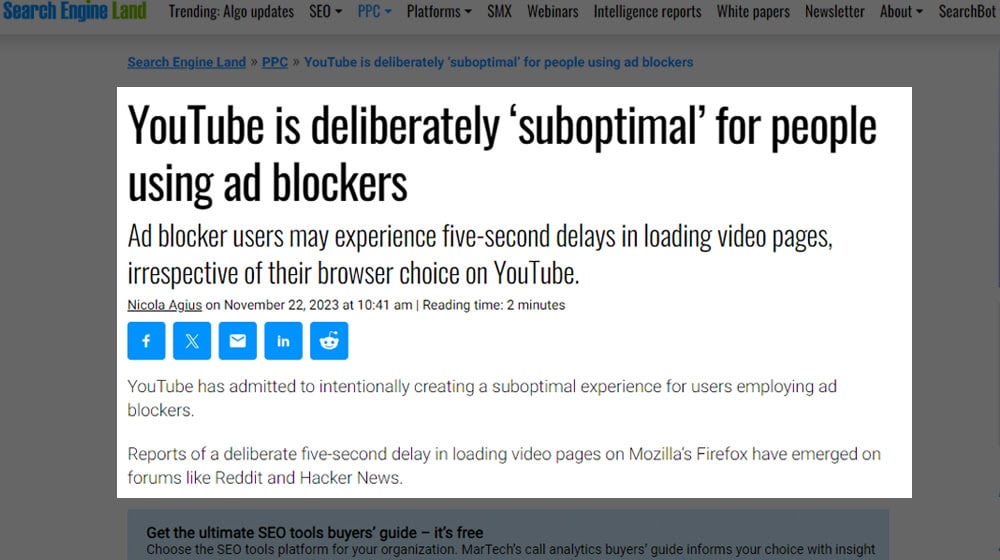
Sites run ads; people ignore those ads, so sites run more ads. When ads get to be too much, people turn to ad-blocking extensions to simply hide or get rid of them entirely. Sites then do many tricks, from adblock detectors that put up "our site is supported by ads, consider unblocking them please" messages all the way to YouTube's intentionally making the experience worse if they detect an ad blocker. This fight can end up locking people out of content, and that makes things worse for everyone.
Cause #4: Poor Content Meant for Ads
A lot of shady, low-content sites slap on ads using clickbait titles and mildly grotesque thumbnails in an attempt to get people to click through, often into one of those sites that have 15 ads and 15 words of content to tell a story with no conclusion, but endless pages to click through (and give the ads exposure.) Anyone who has been trapped in one of those seemingly endless clickbait stories knows exactly what I'm talking about.

The issue here is only partially due to the ads. Truthfully, it's more about the fact that the sites themselves are thin content. These aren't usually properly paginated for SEO, and even if they are, it's a pretty obvious obfuscation that Google can see right through.
The proof is in the pudding here. How many of these sites do you ever see in the search ranking? Zero. The only way you ever end up on one of these sites is by clicking an ad, usually something that looks like a related post from your Buzzfeed/Upworthy-style site that already has mid-level content. Those sites only exist because they can barely make a profit by paying for ads on sites that do rank and trapping people on them long enough to make that money back from their own ads. They're also driving down ad quality and pricing for the rest of us.
Cause #5: Malicious Ads
The last possible cause, at least in my experience, of why ads might hurt your site's SEO is when those ads end up serving malicious content. Ads are one of the biggest vectors of viruses, cryptolockers, and phishing scams on the modern internet. While ad networks do a lot to police themselves, there are always opportunities for bad ads to slip through, and it's even more reason for your site to be vigilant about what ads you serve.
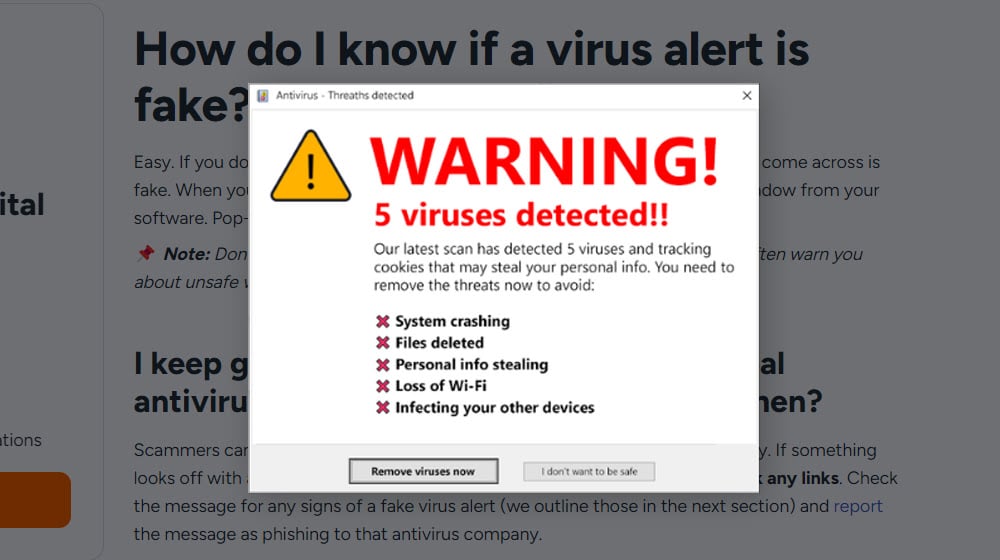
Fortunately, this is not often a direct penalty to you. Google doesn't usually hold the content of the ads on your site against you, again, because it's so customized. However, malicious ads drive away users, and when users leave, your other metrics drop and that feeds back into a worse SEO ranking.
Solving the Ads Problem
So, is your site being penalized for ads? Maybe, and if so, it's usually because of ad density. Truthfully, though, display ads are simply not worth it for the majority of sites these days. They pay so little unless you're in certain very specific niches that it's often not worth the work, let alone the chance of driving away users.
If you insist on using display ads – and trust me, I get it, it's easy, if nothing else – focus on quality over quantity. Get into the best ad networks you can. Focus on producing excellent content to attract high-quality ads and high-quality visitors, and avoid any of the shady tricks like excessive pagination that hurt a site more than they help.
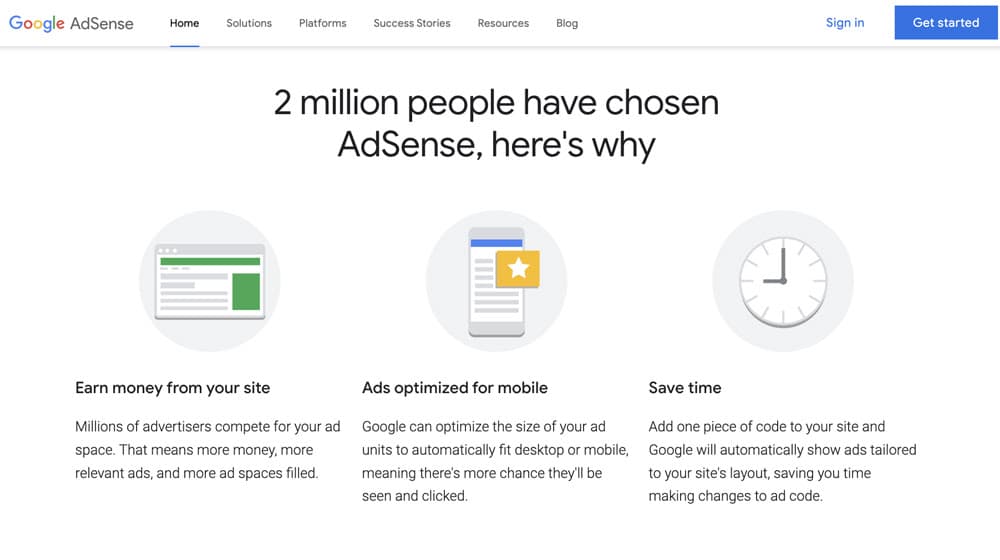
Truthfully, just running ads normally is unlikely to hugely damage your site unless you end up with some terrible pagespeed or web vitals problems. Most sites penalized for ads are doing something wrong beyond just running the ads. As long as you avoid making those mistakes, you should be fine. Either way, though, I encourage you to find alternate monetization methods.



 30 Second Summary
30 Second Summary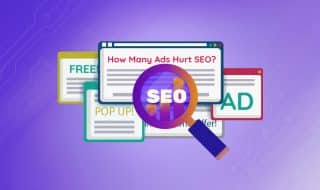


October 09, 2024
hey, have you noticed any changes in your site's seo now that you're using display ads? i'm pretty curious about how things are going for you!
October 10, 2024
Hey Lawanna!
I've noticed that display ads don't really affect SEO results too much. Some of our clients might see small changes but it's usually more about improving user experience. It's really important to make sure your ads are balanced with your content so that your visitors stay happy. Have you thought about how these ads fit into your site's overall layout?
Feel free to let me know if you're looking into any specific ad networks! 😊